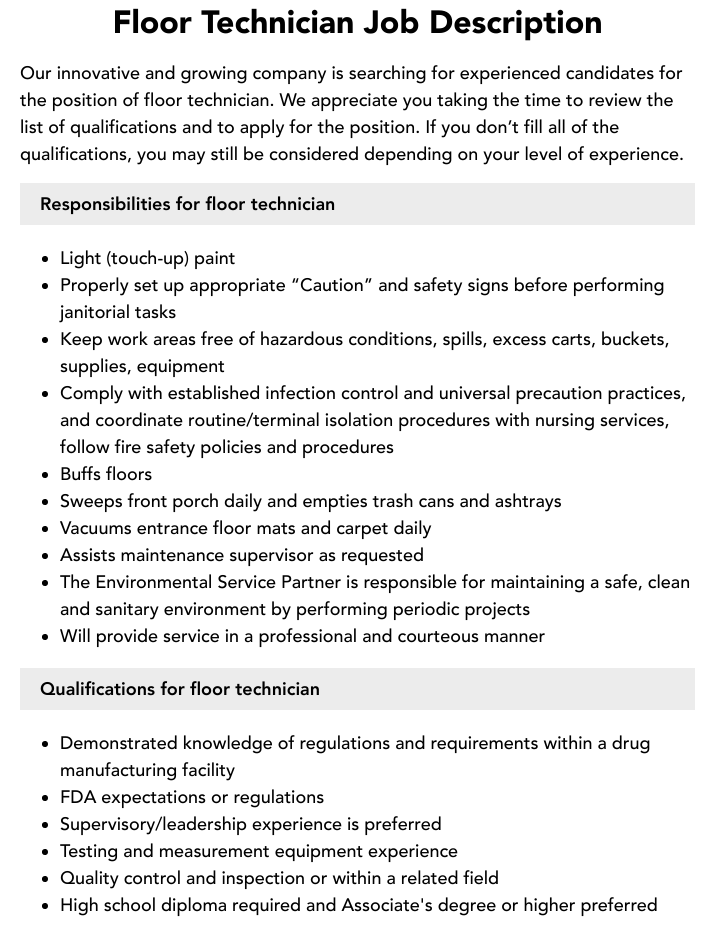
An AR specialist job description outlines the roles and responsibilities of a professional specializing in augmented reality (AR). AR technology overlays digital information onto the physical world, enhancing user experiences and creating immersive environments.
AR specialists play a vital role in developing and implementing AR solutions across various industries, including gaming, retail, healthcare, and manufacturing. They collaborate with designers, engineers, and other stakeholders to create AR applications that meet specific business objectives and user needs.
The main article will delve into the following topics:
- Roles and responsibilities of an AR specialist
- Skills and qualifications required for an AR specialist
- Industries where AR specialists are in high demand
- Career path and salary expectations for AR specialists
- The future of AR technology and its impact on the job market
1. Technical skills
In the context of an AR specialist job description, technical skills form the cornerstone of the role. AR specialists are responsible for designing, developing, and implementing AR solutions, which requires a comprehensive understanding of computer science, computer vision, and software development.
- Computer science: AR specialists must have a solid foundation in computer science principles, including data structures, algorithms, and software design. This knowledge enables them to develop efficient and scalable AR applications.
- Computer vision: Computer vision is a critical component of AR, as it allows AR devices to perceive and interpret the physical world. AR specialists must be proficient in computer vision techniques such as image recognition, object tracking, and scene understanding.
- Software development: AR specialists are responsible for developing AR applications, which requires proficiency in various programming languages and software development tools. They must be able to create AR experiences that are both functional and user-friendly.
Overall, the technical skills required for an AR specialist job description highlight the need for individuals with a strong foundation in computer science, computer vision, and software development. These skills enable AR specialists to create innovative and immersive AR experiences that enhance user interactions and transform industries.
2. Creativity
In the context of an AR specialist job description, creativity is a fundamental trait that drives the success of AR applications. AR specialists are tasked with creating immersive and engaging AR experiences that captivate users and enhance their interactions with the physical world. To achieve this, they must possess a creative mindset that enables them to think outside the box and come up with innovative solutions.
The creative process for AR specialists involves understanding the target audience, identifying their needs, and conceptualizing AR experiences that meet those needs. They must have a strong sense of aesthetics and design principles to create AR experiences that are visually appealing and user-friendly. Additionally, they must be able to leverage their imagination to create AR experiences that are both educational and entertaining.
Examples of creative AR experiences include interactive educational games that bring history to life, immersive shopping experiences that allow users to try on virtual products, and collaborative design tools that enable remote teams to work together in a shared AR environment. These examples showcase the transformative power of creativity in the field of AR and highlight the importance of AR specialists who possess a creative mindset.
3. Communication
Within the context of an AR specialist job description, communication skills are paramount for effective collaboration and successful project outcomes. AR specialists serve as a bridge between technical teams and stakeholders from diverse backgrounds, including designers, engineers, product managers, and clients. Their ability to clearly articulate technical concepts, present ideas, and facilitate discussions is essential for ensuring that all team members are aligned and working towards common goals.
The collaborative nature of AR development requires specialists to possess strong interpersonal and active listening skills. They must be able to understand the perspectives of others, build consensus, and resolve conflicts that may arise during the development process. Effective communication enables AR specialists to effectively gather requirements, provide updates, and present project deliverables, ensuring that all stakeholders are informed and engaged throughout the project lifecycle.
In summary, communication skills are an integral component of an AR specialist job description as they foster collaboration, bridge knowledge gaps, and contribute to the overall success of AR projects. By effectively communicating, AR specialists can harness the collective expertise of cross-functional teams and deliver innovative AR solutions that meet the needs of users and stakeholders alike.
4. Industry knowledge
Within the context of an AR specialist job description, industry knowledge plays a pivotal role in the successful implementation of AR solutions. AR specialists must possess a deep understanding of the specific industry in which they are working to effectively tailor AR solutions to meet the unique needs and challenges of that industry.
For example, an AR specialist working in the healthcare industry must have a thorough understanding of medical terminologies, procedures, and regulations. This knowledge enables them to develop AR applications that seamlessly integrate with existing medical workflows and provide valuable assistance to healthcare professionals. Similarly, an AR specialist working in the manufacturing industry must have a strong grasp of engineering principles and manufacturing processes to create AR solutions that enhance productivity and safety on the factory floor.
By understanding the industry-specific context, AR specialists can design and develop AR solutions that are not only technically feasible but also practically applicable and beneficial to the target users. This industry knowledge ensures that AR solutions align with the specific goals, challenges, and pain points of the industry, maximizing their impact and driving tangible business outcomes.
In summary, industry knowledge is a crucial component of an AR specialist job description as it empowers specialists to create AR solutions that are tailored to the unique needs of specific industries. This understanding enables AR specialists to deliver innovative and effective solutions that drive business value and transform industry practices.
FAQs on AR Specialist Job Description
This section addresses frequently asked questions about the job description of an AR specialist, clarifying common misconceptions and providing essential information for those interested in this field.
Question 1: What are the primary responsibilities of an AR specialist?
Answer: AR specialists are responsible for designing, developing, and implementing augmented reality (AR) solutions. This includes collaborating with designers, engineers, and other stakeholders to create AR applications that meet specific business objectives and user needs.
Question 2: What skills and qualifications are required to become an AR specialist?
Answer: AR specialists typically require a strong foundation in computer science, computer vision, and software development. They should also possess creativity, excellent communication skills, and a deep understanding of the industry in which they are working.
Question 3: What industries are AR specialists in high demand?
Answer: AR specialists are in high demand in various industries, including gaming, retail, healthcare, manufacturing, and education. As AR technology continues to advance, the demand for skilled AR specialists is expected to grow.
Question 4: What is the career path for an AR specialist?
Answer: AR specialists can advance their careers by taking on leadership roles, specializing in specific areas of AR, or pursuing management positions. With experience and expertise, AR specialists can progress to roles such as AR development manager, AR project manager, or even Chief AR Officer.
Question 5: What is the salary range for AR specialists?
Answer: The salary range for AR specialists varies depending on their experience, skills, and location. According to Glassdoor, the average salary for an AR specialist in the United States is around $100,000 per year.
Question 6: What is the future of AR technology and its impact on the job market?
Answer: AR technology is rapidly evolving and is expected to have a significant impact on various industries. As AR technology becomes more sophisticated, the demand for skilled AR specialists is likely to increase. This growth will create new job opportunities and career paths for those interested in this field.
In summary, the job description of an AR specialist encompasses a wide range of responsibilities, skills, and qualifications. By addressing common FAQs, this section provides valuable insights into this emerging profession and its future prospects.
Transition to the next article section: For further exploration of the topic, we recommend exploring the following resources:
Tips for Crafting an Effective AR Specialist Job Description
When crafting an AR specialist job description, there are several key tips to consider to ensure that it accurately reflects the role and attracts the most qualified candidates.
Tip 1: Clearly define the role and responsibilities. The job description should clearly outline the primary responsibilities of the AR specialist, including the design, development, and implementation of AR solutions. It should also specify any industry-specific knowledge or experience that is required.
Tip 2: Highlight the required skills and qualifications. The job description should list the essential skills and qualifications that candidates must possess, such as a strong foundation in computer science, computer vision, and software development. It should also mention any desirable skills or experience, such as creativity, communication skills, and industry knowledge.
Tip 3: Use industry-specific keywords. To attract the most qualified candidates, the job description should use industry-specific keywords that potential candidates are likely to search for. This includes terms such as “augmented reality,” “computer vision,” and “software development.”
Tip 4: Provide a competitive salary and benefits package. The job description should include information about the salary and benefits package that the company offers. This information will help candidates assess whether the position is a good fit for their financial needs.
Tip 5: Promote the company culture. The job description should also provide information about the company culture and values. This will help candidates understand whether the company is a good fit for their personality and career goals.
By following these tips, you can create an effective AR specialist job description that will attract the most qualified candidates and help you build a successful AR team.
Key takeaways:
- Clearly define the role and responsibilities.
- Highlight the required skills and qualifications.
- Use industry-specific keywords.
- Provide a competitive salary and benefits package.
- Promote the company culture.
By incorporating these tips into your job description, you can increase your chances of attracting and hiring the best AR specialists in the market.


